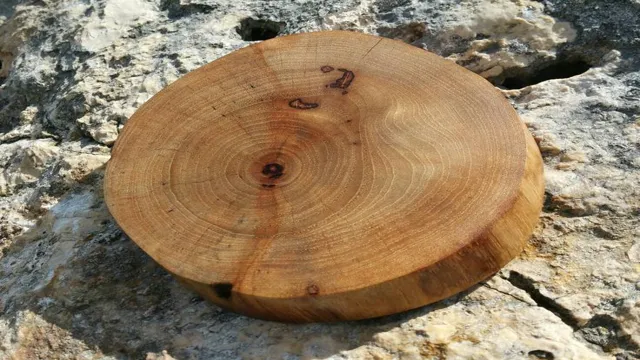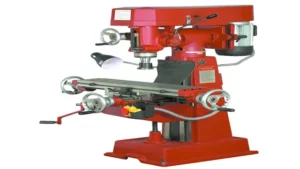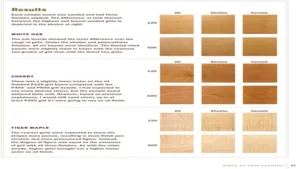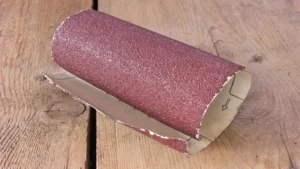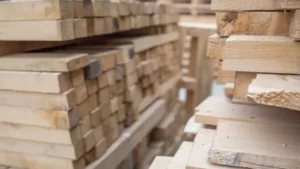If you’re looking for an attractive and durable wood for your next woodworking project, you might want to consider pecan wood. Pecan wood is a versatile and highly sought-after hardwood that is prized for its rich, warm tones and outstanding durability. It has a unique grain pattern that makes it an ideal choice for furniture and flooring, and it is often used in the construction of high-end cabinetry and millwork.
But what makes pecan wood so desirable, and how much should you expect to pay for it? In this blog, we’ll explore the value of pecan wood, taking a look at pricing and the key factors you should consider when evaluating its worth. So, if you’re a woodworker, furniture maker, or homeowner who loves the beauty and durability of fine hardwoods, read on to discover the many benefits of pecan wood.
Determining Worth: Factors that Affect Pecan Wood Prices
Are you wondering how much your pecan wood is worth? There are several factors that affect the price you might get for your wood. One of the primary things to consider is the quality of the wood. Pecan wood that is straight and without knots is worth more than wood that is crooked or has many knots.
Additionally, the size of the pieces can impact the price. Larger pieces of wood are often worth more since they provide more usable lumber. The location of the wood can also influence its value, as transportation costs can eat into profits.
Another important factor is the moisture content of the wood. Dry pecan wood is worth more than fresh wood since it is lighter and easier to work with. Finally, the demand for pecan wood at any given time impacts its value.
When demand is high, prices will generally be higher, while low demand can lead to lower prices. By considering these factors, you can get a better understanding of how much your pecan wood is worth.
Species and Quality
When it comes to determining the worth of pecan wood, there are several factors to consider. Two of the most important factors are the species of the wood and its quality. The species of the wood can greatly impact its value, with some species being more desirable than others.
For example, the pecan tree is highly sought after for its wood, due to its unique color and grain pattern. Additionally, the quality of the wood can greatly influence its value. High-quality pecan wood that is free from defects and has a consistent grain pattern will command a higher price than lower quality wood.
It’s important to keep in mind that factors such as age and size can also impact the value of pecan wood. By taking these factors into consideration, it’s possible to determine a fair price for pecan wood that reflects its true value.
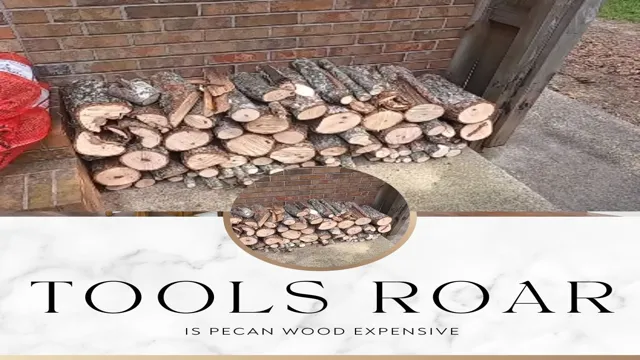
Market Demand and Supply
Pecan wood prices are determined by a combination of market demand and supply, as well as other factors that can affect the worth. Some of the primary factors that determine the value of pecan wood include the quality of the wood, the quantity available, and the intended use. Quality can be determined by factors such as density, color, and grain pattern, which can affect the appearance and performance of the wood.
Quantity is a significant factor because a limited supply can increase the value of the wood, while an abundance can decrease its worth. Intended use is also essential because the same piece of wood could be worth more if it is intended for use in a high-end furniture piece versus a lower quality application. Other factors that can affect the value of pecan wood include the location of the source, transportation costs, and any additional processing required to prepare the wood for sale.
Ultimately, the value of pecan wood fluctuates based on market demand and supply, quality, quantity, intended use, and various other factors.
Processing Costs
One of the key factors that influences the price of pecan wood is its processing cost. The process of harvesting, drying, milling, and treating pecan wood requires a substantial amount of labor and resources, which adds up to the overall cost of production. Naturally, this translates into higher prices for consumers who are looking to purchase pecan wood products.
Additionally, the quality or grade of the wood may also impact its processing cost. Higher grade pecan woods typically require more attention and care during the processing phase, which further increases the final cost. Therefore, it’s important to take into account the processing costs when considering the value of pecan wood products.
Ultimately, the unique beauty and durability of pecan wood make it a valuable and sought-after material, and one that is worth the investment for those looking for top-quality wood products.
Pricing Pecan Wood: Average and Range
If you’re wondering how much pecan wood is worth, the answer is not straightforward. The price of pecan wood varies depending on several factors such as location, quality, and demand. However, on average, a cord of pecan wood could cost anywhere from $150 to $400.
The price range may seem wide, but this is because pecan wood’s value is affected by several factors. For instance, the location of the seller affects the price because pecan trees grow more abundantly in some regions than in others, which affects supply. Additionally, the quality of the wood affects its worth as wood that is straight, uniform in texture, and free from defects is typically more expensive than wood with knots or warping.
Finally, demand plays a role in determining the price of pecan wood. If there’s high demand for it, the price increases. Conversely, if demand is low, the price may decrease.
In summary, the price of pecan wood varies significantly. It’s best to get in touch with local sellers to determine the current price if you’re considering buying or selling pecan wood.
Current Market Prices for Pecan Wood
Pecan wood is a popular choice for smoking meats due to its rich and sweet flavor profile. But what are the current market prices for this coveted wood? On average, a pound of pecan wood chunks or chips can cost anywhere from $50 to $
50. However, prices can vary depending on the retailer and the quantity purchased. For example, buying in bulk may bring the price down.
It’s important to shop around and compare prices before making a purchase. Another factor to consider is the quality of the wood. Pecan wood that is dried and seasoned will be more expensive than freshly cut wood.
However, investing in high-quality wood can make a big difference in the taste and aroma of your smoked meats. Overall, the price of pecan wood is worth it for barbecue enthusiasts who want to elevate their grilling game.
Price Ranges for Various Pecan Wood Products
When it comes to pecan wood products, pricing can vary depending on the type and quality of the item. For example, pecan wood chips can range from $10 to $30 per bag depending on the size and brand. Pecan wood chunks for smoking can range from $20 to $50 for a 10-pound bag.
Pecan wood logs, ideal for large smokers or fire pits, can range from $25 to $70 depending on the size and thickness of the log. Pecan wood planks for grilling can cost around $15 to $25 per plank. It’s important to keep in mind that the prices mentioned here are averages and could vary depending on where you purchase them.
Additionally, it’s essential to note that investing in high-quality pecan wood products can vastly improve the flavor of your food and the overall cooking experience. So, don’t let the price tag scare you off from experiencing the delicious taste of pecan wood-smoked or grilled food!
Maximizing Pecan Wood Value: Tips and Strategies
Are you wondering how much your pecan trees are worth? Maximizing the value of pecan wood requires proper management of your trees, harvesting practices, and market research. The value of pecan wood can vary based on the size and quality of the logs, demand in the market, and regional pricing. Pecan is a valuable hardwood that is popular for furniture, cabinetry, and flooring due to its attractive grain pattern and durability.
You can increase the value of your pecan wood by ensuring your trees are healthy and free from disease, harvesting at the right time, and selling to the right buyers. It’s important to connect with local woodworkers and industries that use pecan wood to determine the price you can expect to receive for selling your wood. Don’t underestimate the value of your pecan wood and take the necessary steps to maximize its worth.
Harvesting and Processing Tips
If you’re looking to maximize the value of your pecan wood, there are a few tips and strategies that can help you out. First and foremost, it’s important to harvest your pecans at the right time. Pecans should be harvested once they’ve fallen from the tree, but before they’ve had a chance to rot or be damaged by pests.
Once you’ve harvested your pecans, it’s time to start processing them. One great way to do this is by using a pecan cracker, which can help you quickly and efficiently crack open your pecans. Additionally, you may want to consider smoking or drying your pecans to enhance their flavor and extend their shelf life.
By following these tips and strategies, you can turn your pecan wood into a valuable commodity that can be used for a variety of purposes. So why not give it a try and see just how much value you can extract from your pecan wood?
Marketing and Sales Strategies
When it comes to maximizing the value of pecan wood, there are a few tips and strategies to keep in mind. First and foremost, it’s important to properly store and season the wood to ensure it’s at its best. This means keeping it in a dry place, away from moisture, and allowing it to dry out for at least six months before use.
Once it’s ready, you can start marketing it to potential buyers, such as local restaurants, BBQ enthusiasts, and even craft breweries. Consider hosting a tasting event or partnering with a chef to showcase the unique flavor and aroma that pecan wood can bring to their dishes. Additionally, you can offer bundle deals or limited-time discounts to incentivize customers to purchase in bulk.
Overall, by properly preparing and promoting your pecan wood, you can increase its value and attract a wider range of customers.
Conclusion: Is Pecan Wood Worth Your Investment?
In conclusion, determining the worth of pecan wood is like trying to put a price on a work of art – it’s subjective and can vary greatly depending on the buyer and seller. While factors like market demand, quality, and quantity can all influence its value, ultimately it comes down to how much someone is willing to pay for it. So, if you’re lucky enough to have some pecan wood on hand, hold onto it tight and be open to negotiations – you never know just how valuable it might be to someone else!”
FAQs
What factors affect the price of pecan wood?
The price of pecan wood can be affected by factors such as supply and demand, quality, and location.
Is pecan wood more expensive than other types of wood?
Pecan wood can be more expensive than some other types of wood due to its desirable properties, but the price can vary depending on the factors mentioned above.
Where can I find information on current market prices for pecan wood?
You can check online marketplaces, local lumberyards, or contact wood suppliers to get an idea of current market prices for pecan wood.
Can I sell my own pecan wood and how much could I earn?
Yes, you can sell your own pecan wood, but the amount you could earn would depend on the quality and quantity of the wood, as well as the market demand and prices in your area.
What are some common uses for pecan wood?
Pecan wood is commonly used for furniture, cabinetry, flooring, and decorative items due to its attractive grain and durability.
How long does it take for pecan trees to mature enough to harvest?
Pecan trees can take anywhere from 6 to 10 years to mature enough to produce a significant amount of wood for harvest.
Are there any regulations or restrictions on harvesting pecan wood?
Regulations and restrictions may vary depending on location and jurisdiction, so it is important to research and comply with any applicable laws and regulations before harvesting pecan wood.
